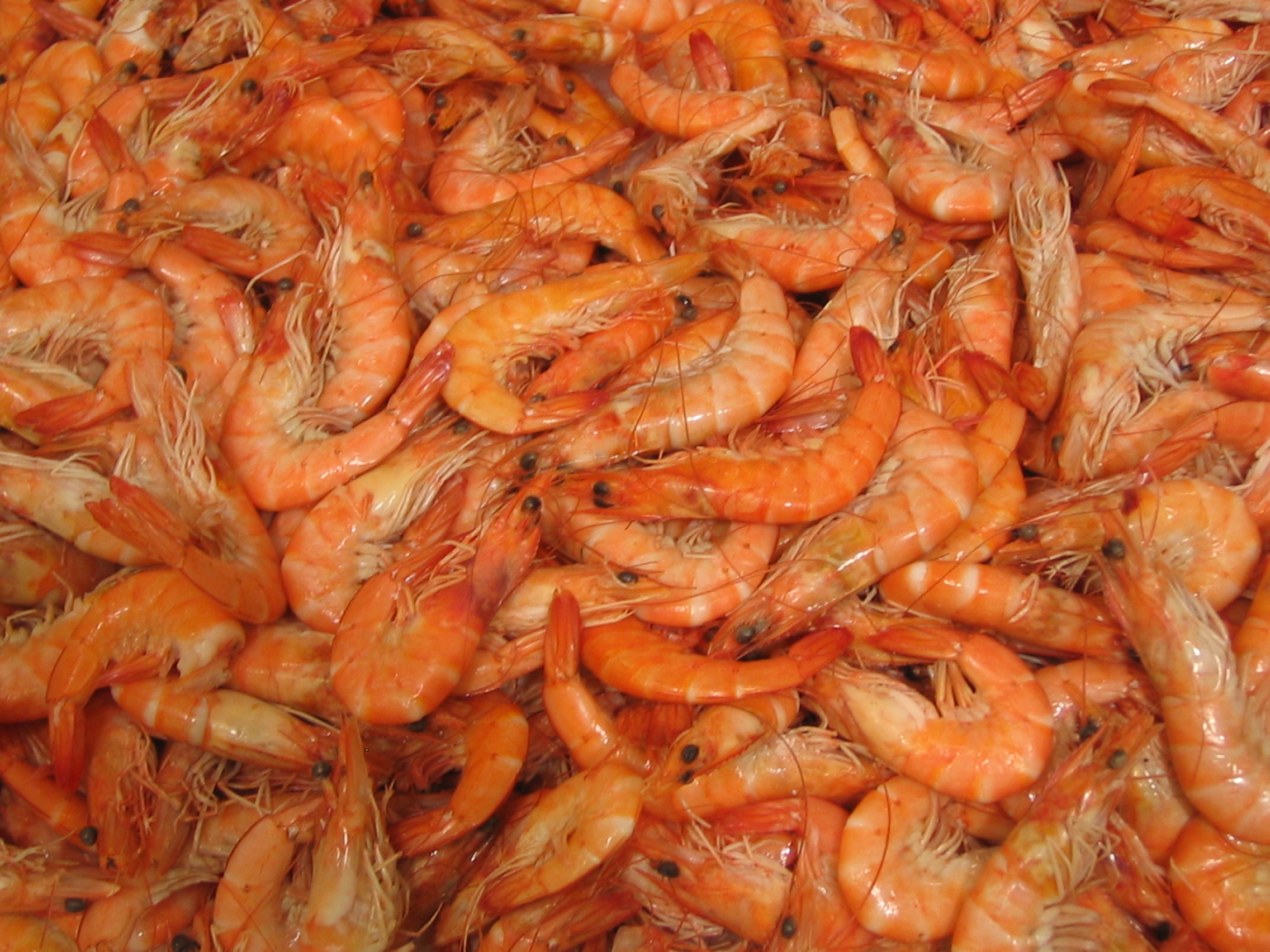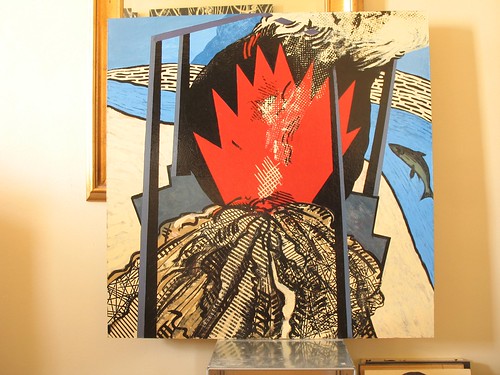|
|
Saturday, May second, 2009
The stories in this issue of Zoetrope: All-Story are getting better and more absorbing as I work my way through the magazine -- probably a product of my growing focus and attention. I just finished reading (for the third time, I think I've got it now) Antonio Ungar's "Hypothetically" (online here) -- it reminded me a bit of Waiting for Godot except with only a single tramp. It's a brief (5-page) fable about wanting to change one's circumstances, but in the end just going on. It takes place in three scenes: the narrator's friend Pierre witnesses a brutal argument ending in murder in the house next door; he fantasizes about leaving London and his job and changing his life; then a month later he is with his friends, celebrating a new 2-year contract from his employer, talking about moving in with his girlfriend and applying for British citizenship. In the last sentences he turns to the narrator "como preguntando algo"; his friend can only "inclinar un poco la cabeza y felicitarlo, con la copa arriba, ensayando la mejor de mis sonrisas." This fable runs the risk of being over-determined -- a similar story has been written often enough that if Ungar dwelled too much on the framework of the fable, it would be boring and trite. But I get the impression he knows this -- most of the story is the first scene, quickly setting up Pierre's life and thoughts and then describing the argument and the crime with a keen realism which contrasts nicely with Pierre's detachment. The second and third scenes are quite brief and work really well this way -- Ungar does not spend time driving his point home, and because he passes it so lightly along, its impact is much greater.
posted morning of May second, 2009: Respond
➳ More posts about Zoetrope: All-Story
|  |
Friday, May first, 2009
The NY Times reviews the Roundabout Theater's production of Waiting for Godot today. It sounds great, and makes me happy I'm going to see it in a few weeks. Lots of cool photos at the link (under "Multimedia"); I especially like this picture:
 Gogo, Pozzo, Didi -- Didi's expression is just fantastic.  I just noticed a pretty cool, subtle optical illusion. This photo was clearly taken by a camera in front of the stage, on approximately the same level as John Goodman's midriff. But if you look at it the right way, it's easy to convince yourself that the camera was in the air, looking down at the trio at a fairly sharp angle. Try it out, see what you think. (Works best if you are only looking at the upper ¾ of the photo.)
posted morning of May first, 2009: 3 responses
➳ More posts about Samuel Beckett
|  |
Tuesday, April 28th, 2009
The latest from Onion TV:
posted evening of April 28th, 2009: Respond
|  |
|
And with springtime come the obligatory garden pictures. Everything is green and colorful and pleasant. (Miriam came over on Sunday and we cooked hot dogs and eggplant on the barbecue, and drank too much of Connie's margueritas.)

posted morning of April 28th, 2009: Respond
➳ More posts about the Family Album
|  |
Monday, April 27th, 2009
(Searching for an image to illustrate this post with; but all the stills from Viridiana that are out there on the web seem to be of the title character, or of the Last Supper scene... Aha! found a picture of Don Jaime.) I met up with Christine this evening to watch Viridiana at the Film Forum; it was really nice to see it again after a couple of years, and yet I find much of what I was thinking about it was in regards to its shortcomings as a story -- this is probably symptomatic of a rebound from being madly in love with it and unable to admit any problems with it... I met up with Christine this evening to watch Viridiana at the Film Forum; it was really nice to see it again after a couple of years, and yet I find much of what I was thinking about it was in regards to its shortcomings as a story -- this is probably symptomatic of a rebound from being madly in love with it and unable to admit any problems with it... Anyway, I don't really want to write about the shortcomings just now besides to say that the visually brilliant second half of the movie did not seem to me very interesting on a human level, and that the ending was wretched; what I wanted to talk about was how strongly I identified with Don Jaime, and how disconcerting that was. For me the moment that really makes this movie worth it is the moment when Don Jaime suddenly realizes that he has gone too far, overstepped the limits of Viridiana's patience and that she is never going to think of him as a human being any more -- his pathetic pleading with her is all-too real.
posted evening of April 27th, 2009: Respond
➳ More posts about Viridiana
|  |
Sunday, April 26th, 2009
I've been enjoying the stories in Zoetrope: All-Story's Latin American fiction issue. Reading them very slowly, moving back and forth between the Spanish and the translation; this is definitely helping get them anchored in my thoughts... Ronaldo Menéndez' story "Insular Menu", about Cubans trying to get by during a period of rationed food, makes me hungry! The story is funny and colorful, the narrator's neighbors raising pigs and crocodiles in their apartments, the zoo director fattening and slaughtering the ostrich, the neighborhood kids fishing from the rooftop for cats; it closes with a dazzling description of the Cuban cuisine that the narrator is missing. The entire long paragraph is well worth your while, I'm just going to quote a bit of it: it closes with a dazzling description of the Cuban cuisine that the narrator is missing. The entire long paragraph is well worth your while, I'm just going to quote a bit of it:
I saw the populous sea that surrounds the islands, and in the sea saw nets and in the nets saw multitudes of shrimp and prawns, saw them populating long familial tables below smiling faces, saw dishes of avocados in slivers and slivers, making a green zebra out of the ceramic, saw oxtail gleaming under chili cream sauce, saw squid and octopi drowning in their ink, saw plantains, mameys, star apples, sapotes, sweetsop, chirimoyas, mangos, saw extra-large lobsters letting their fragrance touch all noses equally...
This is a passage where rhythm is really key. Take a look at the original:
Vi el populoso mar que rodea la isla, y del mar vi redes y de las redes vi muchedumbres de camarones y langostinos, los vi poblando largas mesas familiares bajo rostros risueños, vi fuentes de aguacates en lascas y lascas y lascas, haciendo de la cerámica una cebra verde, vi rabo de toro encendido bajo crema de ajÃ, vi pulpos y calamares ahogados en su tinta, vi plátanos, mameyes, caimitos, zapotes, anones, chirimoyas y mangos, vi langostas de talla extra larga dejando que su olor tocara por igual todas las narices,...
...What to say? I like the English passage, and there does not seem to be any mistranslation (though "in slivers and slivers" is not great), but it does not hold a candle to the Spanish.
 Update: Jim Tucker posts his own attempt at an English translation in comments, and does it very well indeed.
posted morning of April 26th, 2009: 4 responses
➳ More posts about Readings
|  |
|
Here is a melody that I've been working on a bit yesterday and today. I'm not sure what kind of a song it is -- at first I thought I might be playing a minuet, and perhaps it is that -- some kind of simple dance. 
While recording this, I finally got my procedure together for setting up and breaking down my recording equipment. Not quite satisfied with the performance, whatever -- this is a work in progress...
 Update: a refinement -- I've changed the B part substantially. have not recorded this yet:

posted morning of April 26th, 2009: Respond
➳ More posts about Fiddling
|  |
Saturday, April 25th, 2009
Martha posts an image of a new painting at her Flickr account today, Loki's House. She explains: Loki was hiding out after the death of Baldur in a house open to all four directions, so he could see if the gods were coming after him. He was making a fishnet when they arrived. He threw the net in the fire and hid in the stream as a fish. But the net didn't burn fast enough.

A longer version of the story is here.Update: Today is a good day for FB friends posting new artwork. Below the fold, a beautiful illustration of James Trotter and various bugs floating on a giant peach, by Jed Alexander.
posted evening of April 25th, 2009: Respond
➳ More posts about Pretty Pictures
|  |
|
I've been having mixed feelings about Book V of LOTR -- I mean the whole trilogy has been fairly warlike, with men who thrive in battle and women who are mostly absent; but the sadistic, drawn-out glamour of the battle for Minas Tirith is freaking me out a bit. Also the timeline of the Riders of Rohan arriving at Minas Tirith and Aragorn arriving leading an army of the dead. (And why no mention is made of their being dead, after he initially hooks up with them in Dunharrow.*) OTOH some of the imagery is just breathtaking, and I like how some of the characters are drawn. Legolas and Gimli are growing on me in a way they have not thus far. Take a look at this passage in Chapter 9, after the two have told Imrahil he is needed at Aragorn's tent:
"That is a fair lord and a great captain of men," said Legolas. "If Gondor has such men still in these days of fading, great must have been its glory in the days of its rising.""And doubtless the good stone-work was wrought in the first building," said Gimli. "It is ever so with the things that Men begin: there is a frost in Spring, or a blight in Summer, and they fail of their promise."
"Yet seldom do they fail of their seed," said Legolas. "And that will lie in the dust and rot to spring up again in times and places unlooked-for. The deeds of Men will outlast us, Gimli." "And yet come to naught in the end but might-have-beens, I guess," said the Dwarf. "To that the Elves do not know the answer," said Legolas.
 * Ah ok, not too many pages later it becomes clear that Aragorn was no longer leading an army of the dead, when he arrived at Minas Tirith. This makes the course of events make much more sense.
posted afternoon of April 25th, 2009: Respond
➳ More posts about The Lord of the Rings
|  |
|
John Holbo's recent posts about "The Squid and the Owl" have been making me think about composition, and specifically about writing in meter. I don't seem to want to write metered poetry right now, but I think it is going to be useful to keep in mind the meter of my sentences as I write prose. Here is a fragment I came up with this morning:
The murky, sticky sediment of thought has not begun to calcify -- not yet, and I believe it can't while I still live. Fossilization takes millions of lifetimes, my Editor is scribbling, is why an archæology metaphor for investigation of your own consciousness cannot work -- and god forbid you should be so presumptuous as to picture actual future archivists tunneling down through your crystalline neural pathways! -- Don't take everything so damn literal I plead, and don't throw my rhythm out like that. Each discarded thought -- each day thousands -- some small rodent's skull, some hunter's artefact, some chitinous exoskeleton cast off and sunk into that dark, pre-conscious stew. As ages of decay and settling pass, this marsh is buried and will turn to rock, and I will no longer have anything to say. -- My current thoughts will crumble and be destroyed utterly (the Editor asserts). Future self, it's on you to dig into these layers of silt and to find these bones and graven images, if there is to be any evidence of me -- so it's on me to dig up and exhume young Jeremy, to see if any of him is worth preserving.
posted morning of April 25th, 2009: Respond
➳ More posts about Poetry
| Previous posts
Archives  | |
|
Drop me a line! or, sign my Guestbook.
•
Check out Ellen's writing at Patch.com.
| |












 I met up with Christine this evening to watch Viridiana at the Film Forum; it was really nice to see it again after a couple of years, and yet I find much of what I was thinking about it was in regards to its shortcomings as a story -- this is probably symptomatic of a rebound from being madly in love with it and unable to admit any problems with it...
I met up with Christine this evening to watch Viridiana at the Film Forum; it was really nice to see it again after a couple of years, and yet I find much of what I was thinking about it was in regards to its shortcomings as a story -- this is probably symptomatic of a rebound from being madly in love with it and unable to admit any problems with it...










 Beautiful:
Beautiful: 